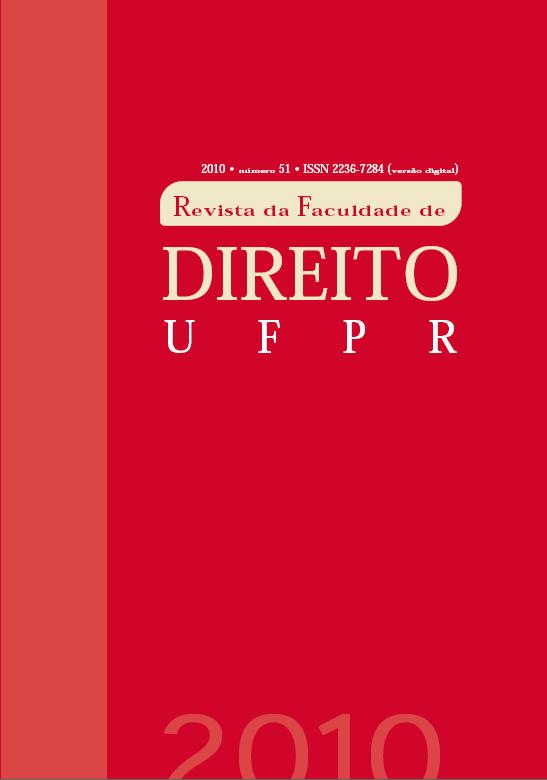A IDEIA DE AUTONOMIA EM LOCKE. FELICIDADE E JUSNATURALISMO. DISPOSITIVO METAFÍSICO-RELIGIOSO E SECULARIZAÇÃO.
DOI:
https://doi.org/10.5380/rfdufpr.v51i0.30280Keywords:
Uneasiness, Felicidade, Heteronomia, Remunerações e Penas,Abstract
É verdade que Locke oscila entre uma tradição intelectualista e realista que lhe vem de Hooker e uma tradição voluntarista, afim da sua própria formação religiosa. Num plano, o da fundamentação última das obrigações, triunfa a segunda, mas no plano das decisões práticas, Locke comporta-se como um puro racionalista.A grande originalidade de Locke reside no modo ecléctico como ele utiliza os conceitos gregos de
phronesis, sophrosyne e epoché, um essencialmente epicurista e aristotélico e o outro proveniente da cultura do cepticismo; e, o que é talvez o mais importante ainda, o modo como ele integra nesta preocupação, a da suspensão do juízo e da acção, o conceito de «uneasiness».
Downloads
How to Cite
Issue
Section
License
Authors who publish in the Journal agree to the following terms:
– Authors retain copyright and grant the Journal the right of first publication, with the work licensed under the Attribution-NonCommercial-ShareAlike 4.0 International licence, allowing the work to be shared as long as proper credit is given to the authors and the initial publication in the Journal is acknowledged;
– Reusers must provide appropriate credit, include a link to the license, and indicate if changes were made, but not in any way that suggests the licensor endorses the reuser or their use;
– Reusers may not apply additional restrictions, legal terms, or technological measures that legally restrict others from doing anything the license permits;
– Reusers must attribute credit to the creator and allow others to distribute, remix, adapt, and build upon the material in any medium or format, exclusively for noncommercial purposes and under the same terms, in compliance with Brazilian Law No. 9,610 of February 19, 1998, and other applicable regulations.



